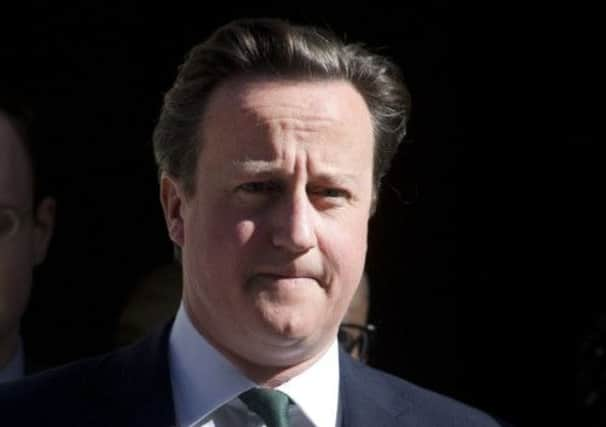Local elections: Cameron urged to cut Etonian links


The Conservatives suffered heavy losses to Ukip in Thursday’s local elections, losing 340 councillors and control of ten councils. Nigel Farage’s party, which campaigns for the UK to leave the European Union, took an average of 25 per cent of the vote in wards where it was standing and won 147 seats, up from just eight. The election was described by Farage as a “game-changer”.
Yesterday, as the Tories considered the ramifications of the result, former leadership candidate David Davis criticised Cameron’s style of government and called for a referendum on Europe before elections to Brussels next year.
Advertisement
Hide AdAdvertisement
Hide AdDavis, who lost his bid to become Tory leader to Cameron in 2005, said Ukip’s policies on law and order, immigration, taxation, foreign affairs, and Europe “mimic a simplified 1980s Tory manifesto”.
Davis, MP for Haltemprice and Howden, said Cameron should stop surrounding himself with fellow Old Etonians and show he understood the concerns of ordinary people.
“If we want to win the next election, we have to break this impression of being privileged and out of touch,” said Davis. “The British public are neither snobs nor inverted snobs, but they do expect the government to understand their problems and do something about it.
“That means more straight talking and fewer focus groups; more conventional Tory policies, not because they are Tory, but because they work; less pandering to metropolitan interest groups; and please, please, no more Old Etonian advisers.”
Home Secretary Theresa May, touted as a possible future prime minister, said voters who deserted the party could be won back but needed “greater certainty” that they would be given a say on membership of the EU.
May said it was important the Tory party stood by Cameron’s plan to renegotiate the terms of Britain’s EU membership and then put the new settlement to the country. “If you want to take a renegotiated settlement to the British people, you have got to renegotiate it,” she told BBC Radio 4’s Today programme.
“We can look at whether we can give some greater certainty in terms of the referendum. I think what we need to do is to be able to show people that we will hold that referendum after the general election.”
She did not rule out introducing legislation in the current parliament to pave the way for a referendum after the general election – despite the tensions it would create with their Liberal Democrat coalition partners. “I am not saying that’s definitely what we are going to be doing,” she said.
Advertisement
Hide AdAdvertisement
Hide AdBut last night political commentator Professor John Curtice, of Stathclyde University, described the politicians’ comments as “predictable” and said Farage was benefiting from the “perfect storm” afflicting the Tories and that his success was based on linking Europe to immigration. Curtice continued: “It is fairly predictable that David Davis and Theresa May have said these things.
“In David Davis’s case, it because he wants a referendum anyway. Politicians are using the election result to angle for what they want.
“We have an electorate which is hurting and experiencing an unprecedented decline in living standards.
“Mr Farage shoots from the hip and says what people think. The government in Westminster is living under a big cloud called the depression. It will be very difficult to put the Ukip genie back in the bottle because of this, thereby making immigration seem like less of a concern.”
Angela Eagle, Labour shadow leader of the Commons, warned the sudden boost in support for Ukip should not allow the Conservatives to “drag the country to the right.” She insisted that Labour – who saw its seats increase by 291 – had made “good progress”.